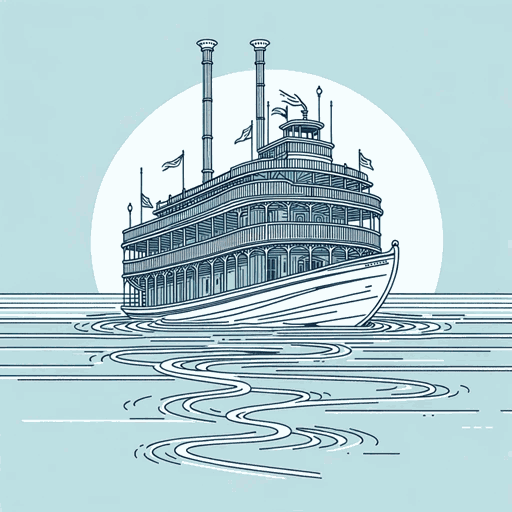56 pages • 1 hour read
John BarthThe Floating Opera
Fiction | Novel | Adult | Published in 1956A modern alternative to SparkNotes and CliffsNotes, SuperSummary offers high-quality Study Guides with detailed chapter summaries and analysis of major themes, characters, and more.
Important Quotes
“If other people (my friend Harrison Mack, for instance, or his wife Jane) think I’m eccentric and unpredictable, it is because my actions and opinions are inconsistent with their principles, if they have any; I assure you that they’re quite consistent with mine.”
(Chapter 1, Page 1)
From the first page, Todd questions the ideologies and behavior of others. He claims he’s only eccentric through the eyes of others and wonders if those very people have principles to begin with. Todd does, however, adhere to principles laid out by himself. His way of life—emphasizing skepticism of others and self-reliance—establishes him as an independent character and contributes to Barth’s commentary on subjectivity and meaning.
“To carry the ‘meandering stream’ conceit a bit further, if I may: it has always seemed to me, in the novels that I’ve read now and then, that those authors are asking a great deal of their readers who start their stories furiously, in the middle of things, rather than backing or sliding slowly into them.”
(Chapter 1, Page 2)
Early on, Barth demonstrates how Todd will reference his own story, as well as question the conventions of the novel as a storytelling medium. Todd adopts a conversational tone with the reader, making his choices to depart from traditional narrative structures feel less intimidating or unwarranted. The same way Todd questions those around him, he questions the novel as a storytelling device, suiting his character while also making the novel more experimental in structure.
“So. Todd Andrews is my name. You can spell it with one or two d’s; I get letters addressed either way. I almost warned you against the single-d, for fear you’d say, ‘Tod is German for death: perhaps the name is symbolic.’ I myself use two d’s, partly in order to avoid that symbolism. But you see, I ended by not warning you at all, and that’s because it just occurred to me that the double-d Todd is symbolic, too, and accurately so. Tod is death, and this book hasn’t much to do with death; Todd is almost Tod—that is, almost death—and this book, if it gets written, has very much to do with almost-death.”
(Chapter 1, Page 3)
Todd creates skepticism around his character even as he introduces himself to the reader. His indecision on how to spell his own name raises the question if that his name at all, making him an unreliable narrator. Todd’s comment about the German word for death being Tod also foreshadows the incident in the Argonne Forest in Chapter 7, in which he kills a German soldier.


